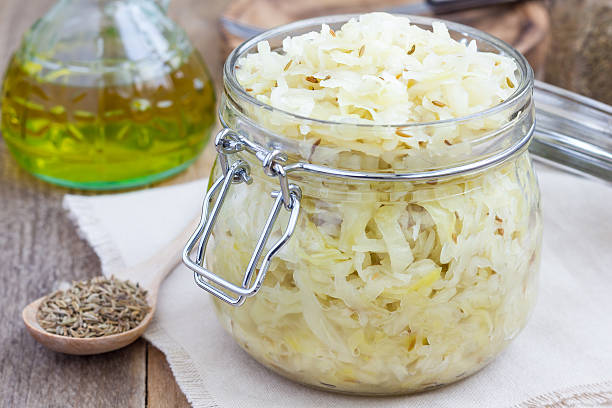Blending fruits and vegetables into liquid removes the bulk essential for digestion- causing diarrhoea -which people call detox- Belinda Otieno, nutritionist
Kenyan urbanites have been going gaga over all manner of food crazes: from cucumber-pineapple detox drinks to sauerkraut (German for sour cabbage), kefir milk, and colon cleansing—which promise everything from weight loss to improved gut health and toxin elimination.
Sauerkraut, for starters, is nothing more than finely cut raw cabbage fermented by various lactic acid bacteria.
For Jacinta Nduguya, a 32-year-old businesswoman in Nairobi, detoxing has become a daily ritual. She explains that she can make her morning juice for herself and her husband with just Sh100. She acknowledges that sometimes she doesn’t add all the ingredients.
Listen to her: “I have been blending carrots, ginger, apple, pineapple, cucumber and beetroot. It detoxes. I take it in the morning before anything else. It helps you not get belly fat and keeps you fit. I don’t want to add weight or lose weight—I just want to avoid a pot belly.”
Detox drinks blending ingredients including turmeric to the above are marketed as quick fixes for bloating, belly fat and overall health.
Advocates often praise pineapple for its bromelain content, thought to aid digestion and cucumber for its hydrating properties.
“My husband and I do it together, and it has really helped him lose weight, from 100kg many months ago to 89kg now. He also walks a lot as well,” continues Jacinta who goes beyond morning detox drinks as “Sometimes we skip supper. We don’t eat wheat during the day, and in the evening, we take water or fruit salad.”
Given the combination of fasting, walking, and dietary adjustments, it becomes challenging to isolate the detox drink as the sole contributor to her husband’s weight loss.
However, a closer look at the science and expert opinions reveals a more nuanced story of detox trends largely driven by social media platforms like TikTok and Instagram.
And Nairobi-based nutritionist Belinda Otieno is now warning that detox drinks, while appealing, often oversimplify the science.
“Blending fruits and vegetables into liquid form removes the bulk essential for digestion. Without bulk, these juices pass quickly through the gut, often causing diarrhoea and dehydration. You open a bout of diarrhoea? That is what people say about detoxing “unatoa uchafu yote kwa mwili” What people think is weight loss is just water weight loss, not fat reduction.”
Otieno adds that resuming normal eating after such dietary experiments can lead to digestive issues as the body “sometimes forgets how to properly synthesize carbohydrates or high-fiber foods, leading to constipation and a vicious cycle of digestive problems.”
Unlike detox drinks, fermented foods like sauerkraut and kefir milk boast stronger scientific support for gut health. Sauerkraut, fermented cabbage rich in lactic acid bacteria, and kefir milk, a probiotic-rich dairy product, can help balance gut flora, improve digestion, and enhance immunity. A 2019 review in Nutrients highlighted their potential to alleviate symptoms of irritable bowel syndrome (IBS) and reduce gut inflammation.
However, Otieno cautions that these foods are not cure-alls and must be consumed as part of a balanced diet. Overconsumption can lead to bloating and discomfort, particularly for those with sensitivities to fermented products. Additionally, while probiotics promote gut health, their effects are gradual and require consistent, long-term use.
Similarly, colon cleansing methods, including herbal remedies or irrigation, claim to “reset” the digestive system.
However, medical experts, like gastroenterologist Dr Deborah Proctor explains in a Mayo Clinic report that the body’s natural detox systems—primarily the liver and kidneys—effectively eliminate toxins without the need for external cleansing.
Otieno adds that colon cleansing, often accompanied by loose stools, can strip the gut of protective mucus and lead to complications such as dehydration, electrolyte imbalances and even intestinal damage.
The popularity of detox trends often stems from the promise of rapid results. Social media influencers tout glowing skin, flatter bellies, and improved energy levels after consuming detox drinks or engaging in colon cleanses. Yet these claims are often anecdotal and lack robust scientific evidence.
Betty Okere, another Nairobi-based nutritionist, attributes the surge in these trends to a combination of misinformation and psychological appeal.
“When you use words like ‘detox,’ it sounds like something big needs to be done,” says Betty. “But in reality, the body already has organs like the liver and kidneys to naturally remove toxins.”
She notes that the psychology of quick fixes plays a significant role. Many detox regimens involve calorie restriction or fasting, which can create the illusion of weight loss. However, this often results in nutrient deficiencies, fatigue, and weakened muscles, particularly in individuals over 40 years who may struggle to regain lost muscle mass.
“People may feel lighter or notice looser clothing, but what they’ve lost is often water weight, not fat,” she explains.
The dangers of detox trends extend beyond ineffectiveness. Both Otieno and Betty highlight risks such as:
- Gut Health Disruption: Excessive use of detox methods can strip the gut of protective bacteria, leading to imbalances that make individuals more susceptible to infections and inflammation.
- Nutrient Deficiencies: Liquid diets and extreme fasting can cause deficiencies in iron, calcium, and essential vitamins, weakening immunity and overall health.
- Digestive Issues: Rapid cycling between diarrhea and constipation can damage the gut lining, increasing the risk of conditions like irritable bowel syndrome (IBS) or leaky gut.
- Psychological Strain: The pressure to follow unsustainable detox routines can lead to mood swings, low energy levels, and unhealthy relationships with food.
A Holistic Approach to Gut Health
Rather than relying on quick fixes, experts advocate for evidence-based practices to support gut health and overall wellness. Key recommendations include:
- Balanced Diet: Incorporate diverse foods rich in fiber, probiotics, and polyphenols, such as fruits, vegetables, whole grains, and fermented products.
- Adequate Hydration: Drink sufficient water to support digestion and metabolic processes.
- Regular Exercise: Physical activity promotes healthy digestion and weight management.
- Mindful Eating: Eat slowly and without distractions to improve digestion and avoid overeating.
- Professional Guidance: Seek advice from qualified nutritionists or healthcare providers for tailored health strategies.
Betty emphasizes the importance of variety in the diet, pointing out that many Kenyans stick to limited staples like ugali, rice, and cabbage. Exploring a wider range of foods, including plant-based and animal-based proteins, can provide essential nutrients and support gut health.
The detox craze, while enticing, often overpromises and underdelivers. While practices like consuming sauerkraut and kefir milk offer genuine benefits, their role as cure-alls is overstated. Detox drinks and colon cleanses, on the other hand, are largely unnecessary and can pose risks to health.
Otieno and Betty agree that the key to lasting wellness lies in sustainable habits, not fleeting trends. As Betty concludes:
“We need to educate the public to make informed choices. True health doesn’t come from following the latest craze but from adopting a balanced, consistent lifestyle.”
In a landscape saturated with wellness trends, separating science from hype is crucial. For Kenyans seeking better health, the best detox may simply be a return to the basics: wholesome food, exercise and hydration.





















